BET inhibition in cardiovascular disease: A new dawn?
At the 'A novel approach for high cv risk patients with diabetes: the potential of epigenetics' symposium, held at the ESC Congress 2016 in Rome, John Kastelein spoke about the first results of BET inhibition as a new therapy to lower CV risk.
Educational information10' education - Aug. 28, 2016 - ESC 2016, Rome - John Kastelein, MD – Academic Medical Center, Amsterdam, The Netherlands - Recorded at PACE-CME symposium at ESC 2016
This lecture was part of a CME accredited symposium: 'A novel approach for high CV risk patients with diabetes: The potential of epigenetics' held at ESC 2016 in Rome
Video navigation menu
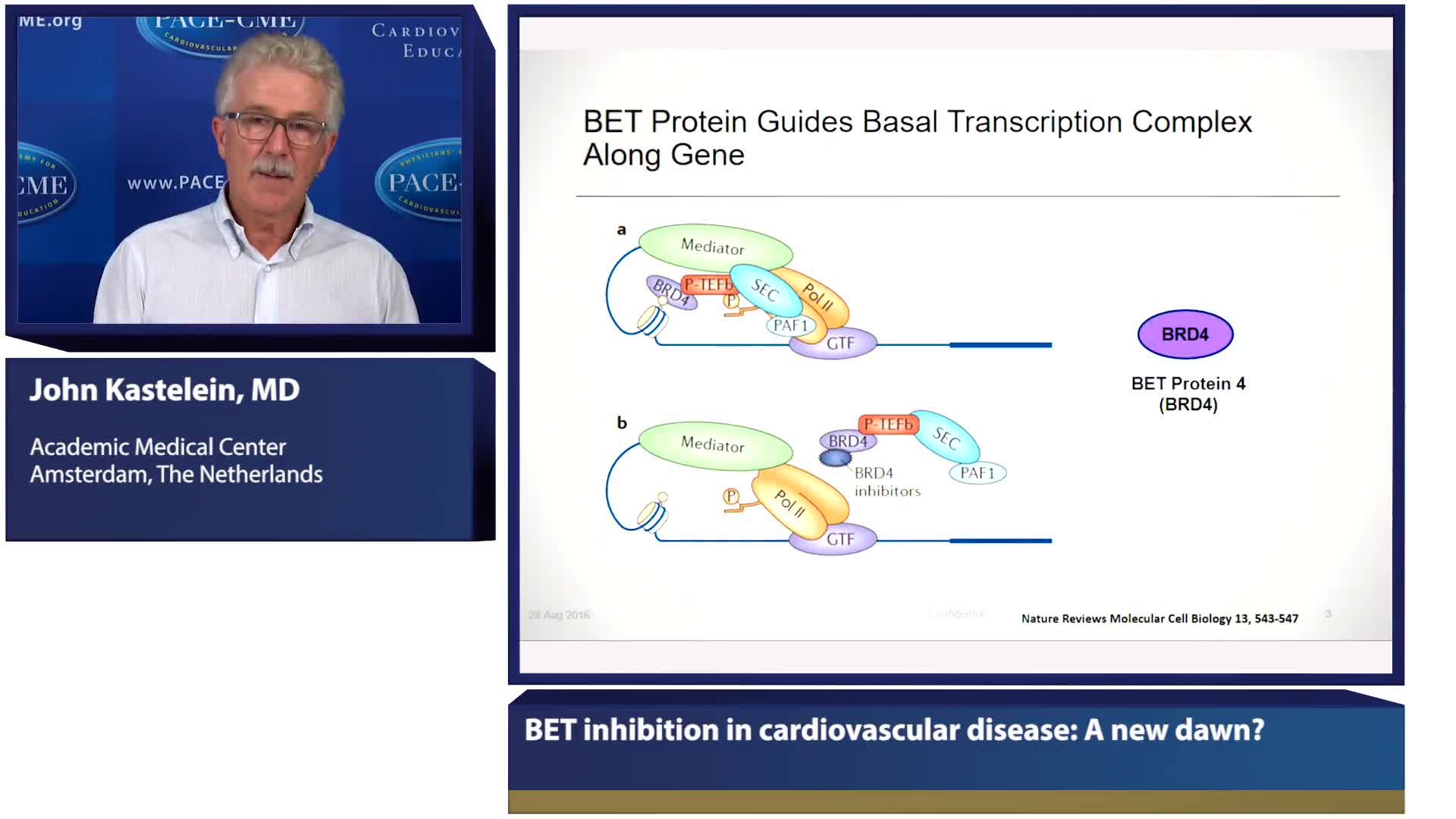 BET protein 4 (BRD4) guides basal transcription complex along the gene 00:27
BET protein 4 (BRD4) guides basal transcription complex along the gene 00:27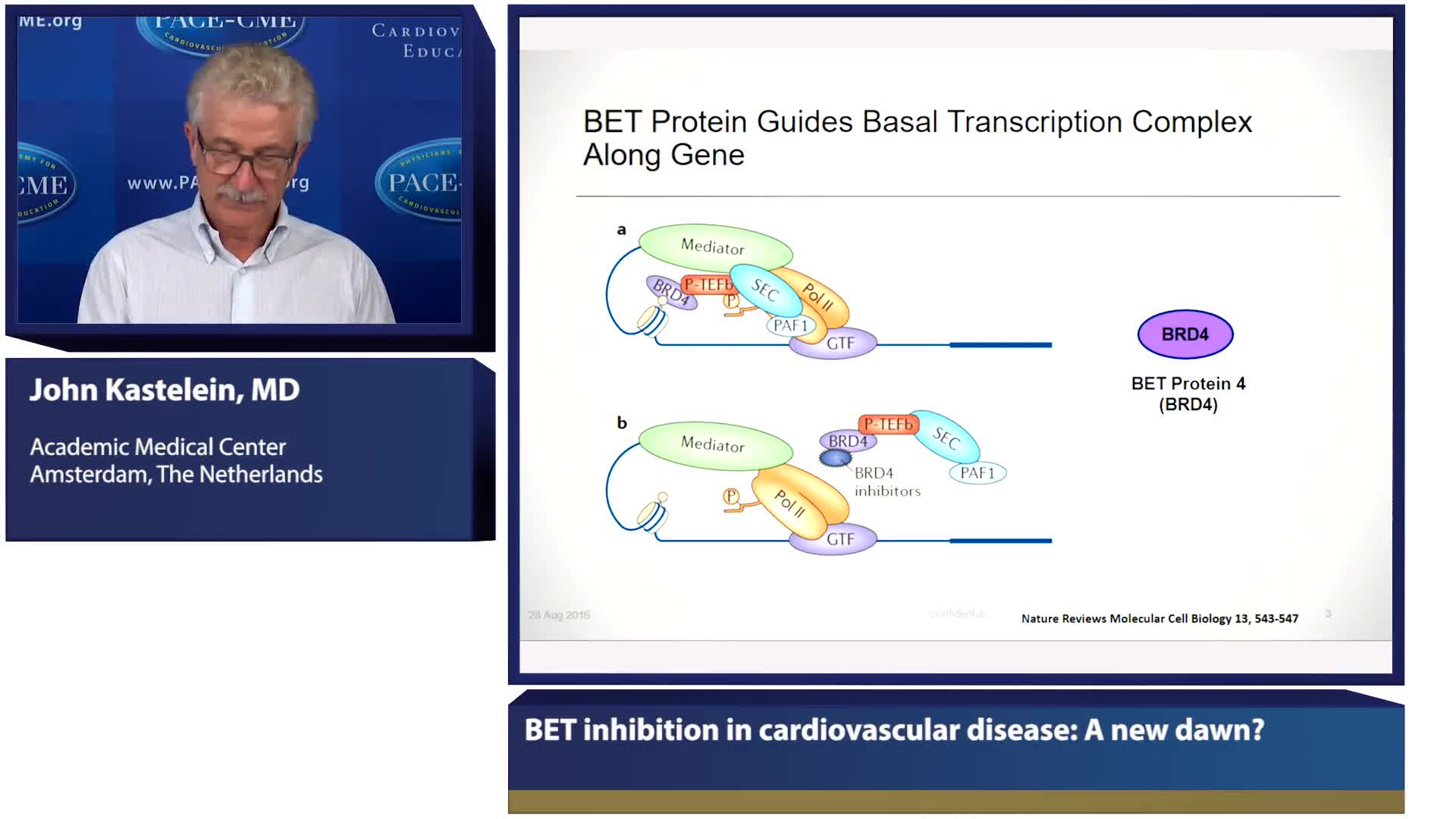 Apabetalone is a selective inhibitor of BET proteins 01:24
Apabetalone is a selective inhibitor of BET proteins 01:24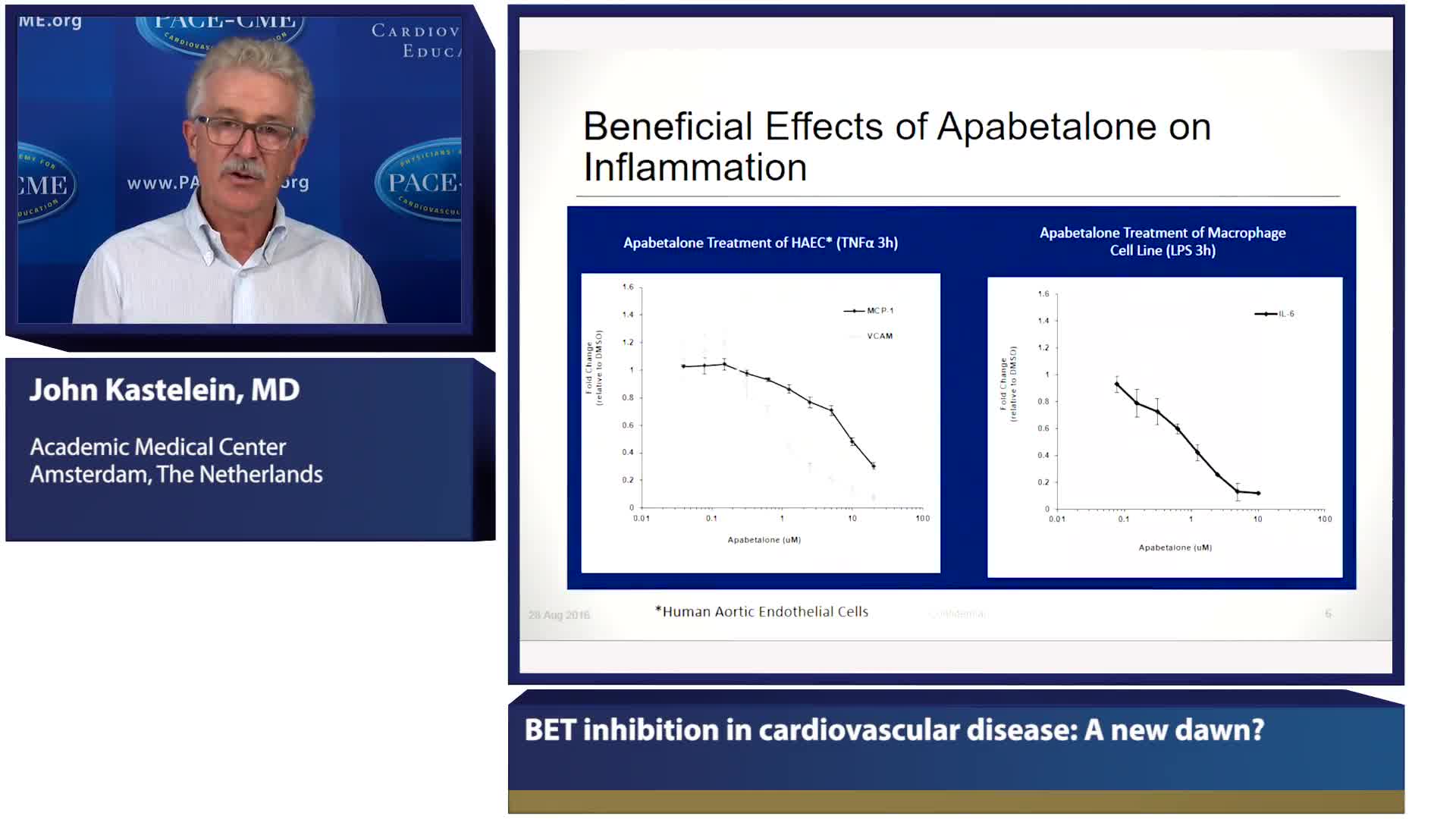 Beneficial effects of apabetalone on inflammation 04:01
Beneficial effects of apabetalone on inflammation 04:01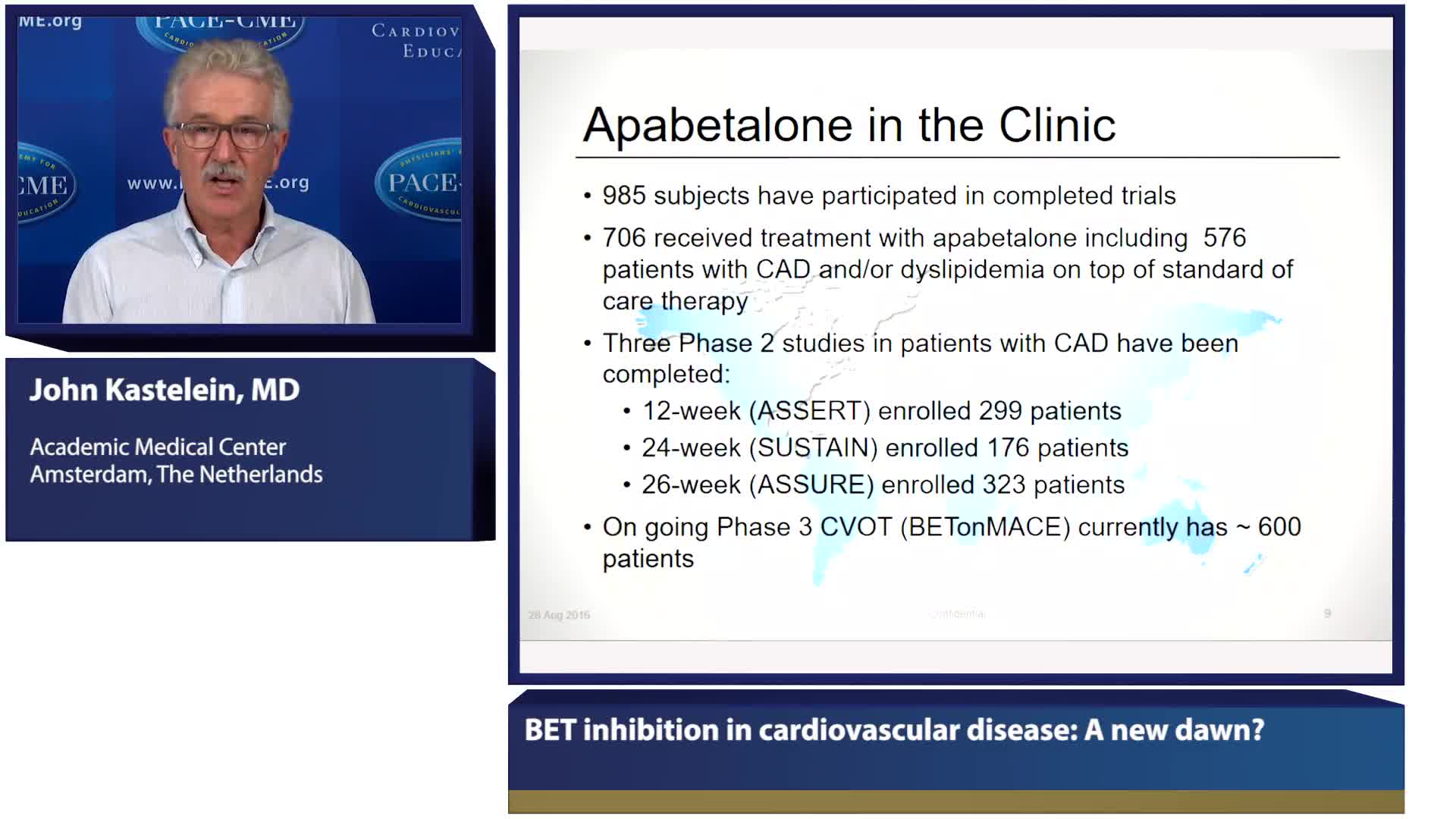 Apabetalone: Clinical studies 05:50
Apabetalone: Clinical studies 05:50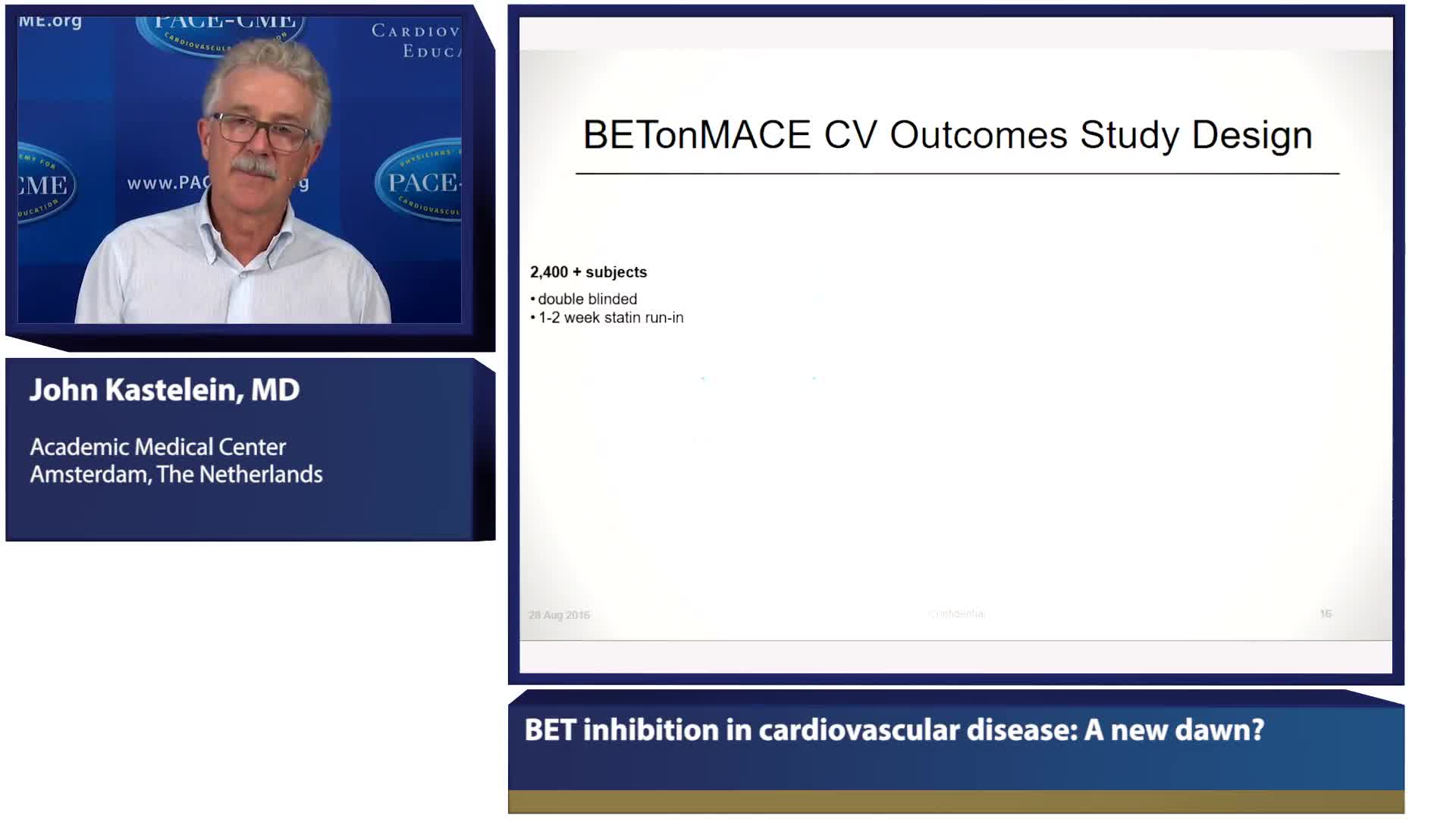 BETon MACE CV outcomes study design 10:33
BETon MACE CV outcomes study design 10:33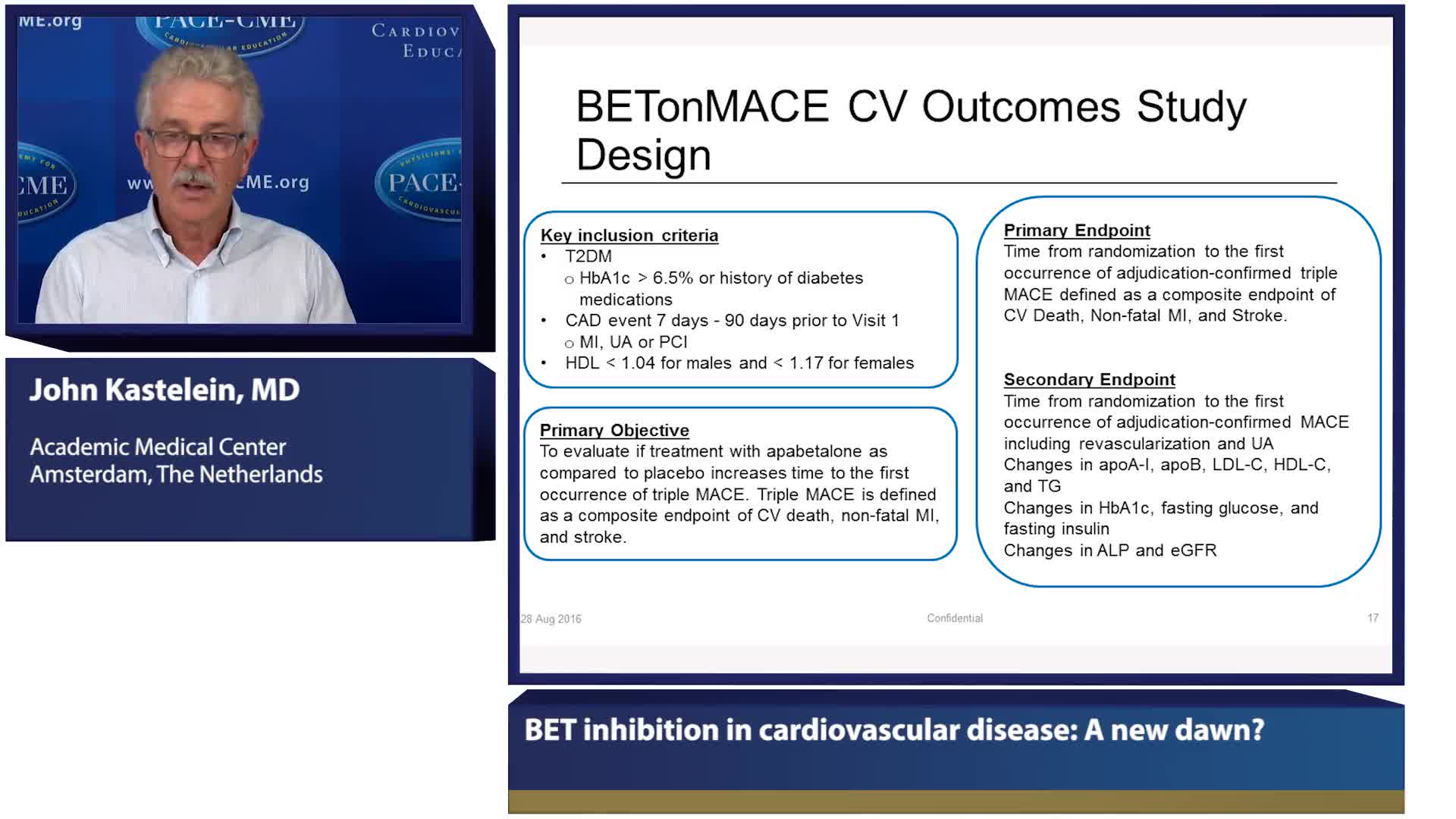 Summary 12:19
Summary 12:19
The educational objectives of this symposium were:
- To summarise the epidemiology and pathophysiology of patients at high cardiovascular risk with diabetes
- To understand the origin of the high residual cardiovascular risk in patients with diabetes & ACS
- To review how BET inhibition affects gene expression via epigenetic mechanisms, as a novel strategy to improve outcomes in CVD
- To update and review current clinical research programmes evaluating the role of epigenetic regulation of gene expression in CVD management.
CME accreditation
This programme is accredited by the European Board for Accreditation in Cardiology (EBAC) for 1 hour of external CME credit(s).
Disclosures
Prof. John J.P. Kastelein is Professor of Medicine and chairman of the Department of Vascular Medicine at the Academic Medical Center (AMC) of the University of Amsterdam, where he holds the Strategic Chair of Genetics of Cardiovascular Disease
Funding
Supported by an unrestricted educational grant from Resverlogix.
